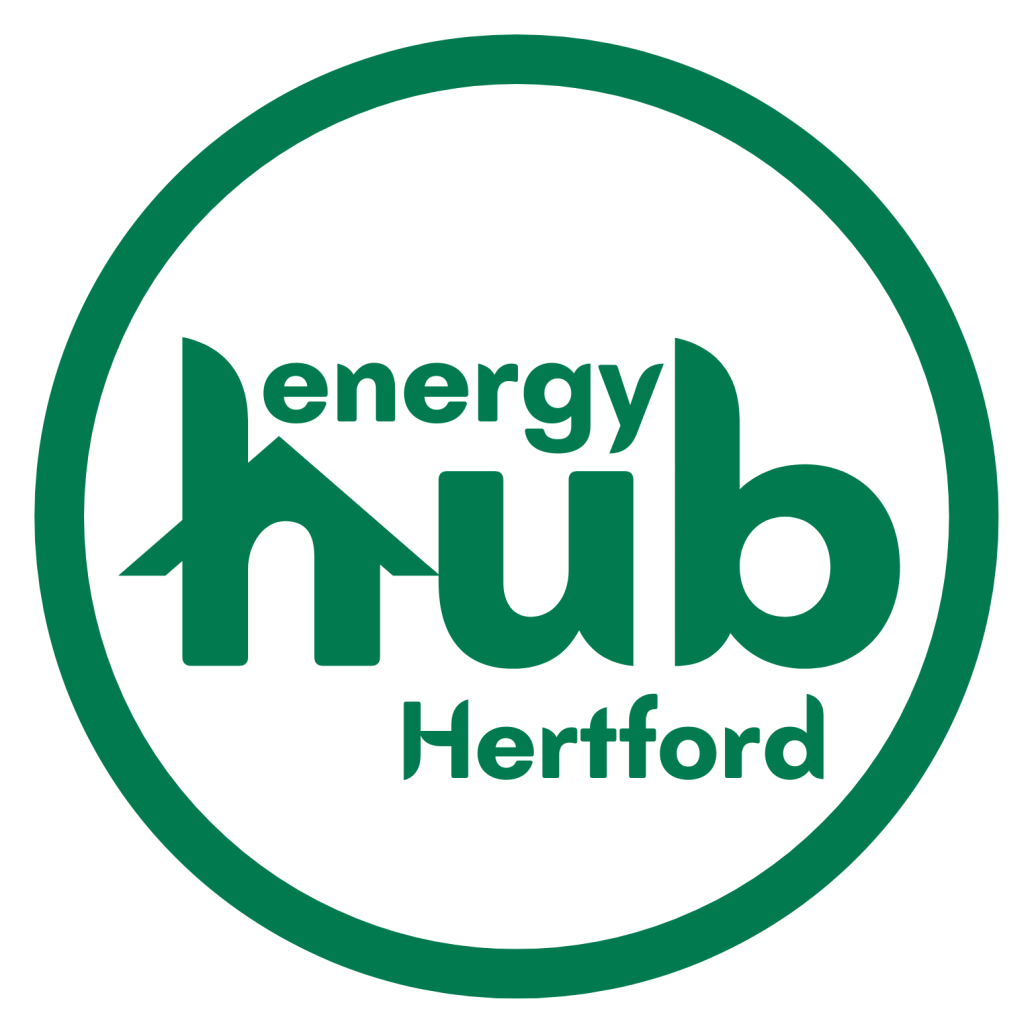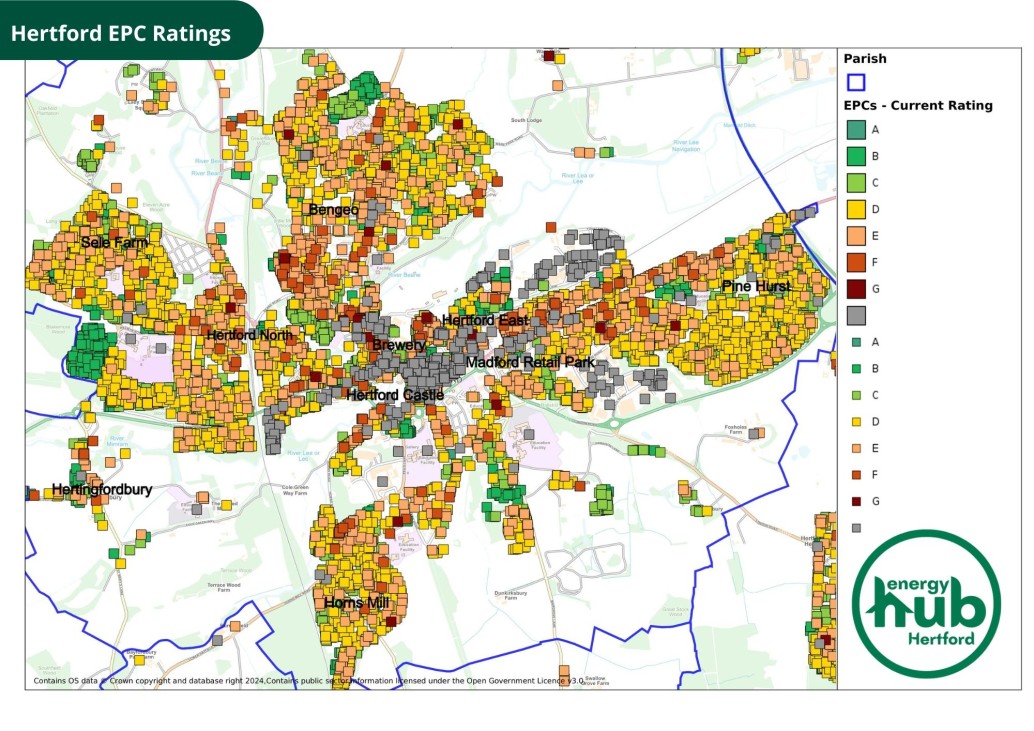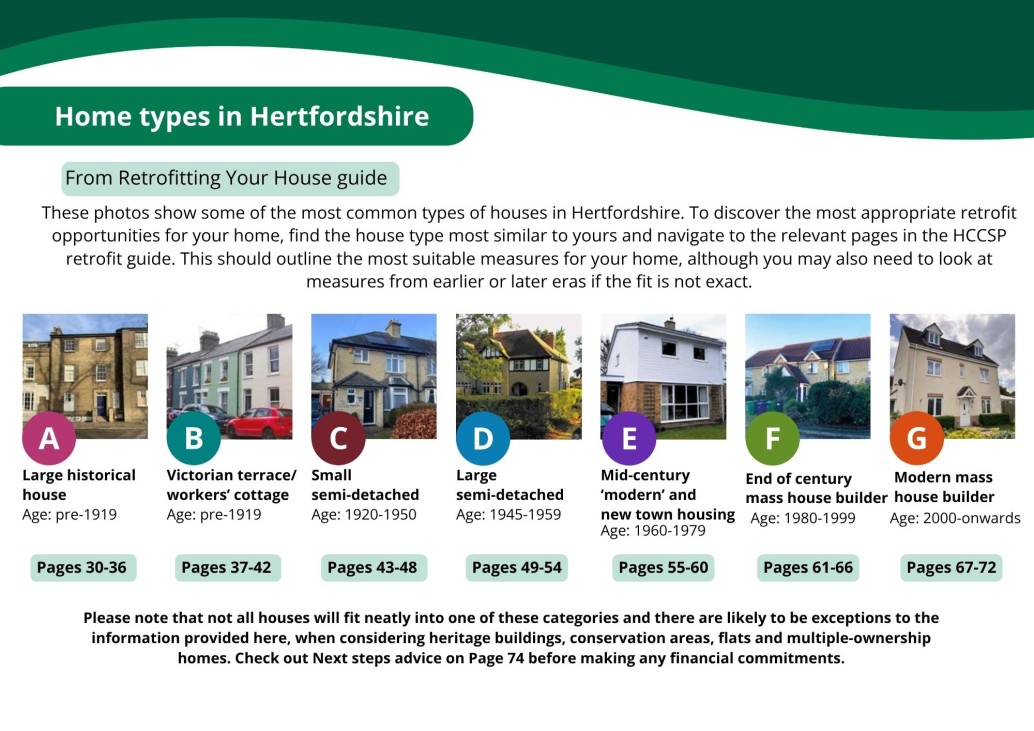Energy Hub Hertford

About the Energy Hub
Energy Hub Hertford wants to help you find ways to make your home waste less energy and produce less carbon. Find out how to save energy and money, decrease carbon emissions and increase comfort in your home.
So, where should you start on your energy saving journey? Scroll down to learn more about:
- EPCs
- Energy Saving Tips
- Retrofitting
- Grants
Next Hertford Energy Hub
The next Hertford Energy Hub will be Saturday 13th September 2025 at All Saint Church's Environment Day. See you there!

EPCs
Energy performance certificates (EPCs) tell you how energy efficient a building is. If your home is more energy efficient it uses less energy to perform a task.
EPCs rate a home from A (very efficient) to G (inefficient). They will tell you how costly it will be to heat and light your property, and what its carbon emissions are likely to be.
An EPC includes:
- cost effective ways to improve your EPC rating.
- information on what the energy efficiency rating could be if you made the recommended improvements.
Even if you rent your home, you could still implement some improvements noted on the EPC, such as switching to more energy efficient light bulbs.
You can find the EPC for your home here, or you can have a look at the PDFs below and see if you can spot your home.
Save Energy and Money
Turn It Off
Have you heard of "vampire power"? It’s also referred to as phantom power or standby power and involves the electricity that devices consume while not actively in use.
British Gas suggests that households could save £147 per year by completely switching off vampire devices like TV’s, microwaves, computers and printers. Don’t let vampire power suck away energy and money out of your wallet, switch your unused devices off at the wall!
Use What You Need
The Energy Saving Trust say that the average household could save £11 a year in energy bills by only filling the kettle as much as needed. This might not sound much on its own, but with other energy-saving changes it all adds up. When it comes to only using what you need, think about:
- Only use the washing machine when it's full
- Not leaving heating appliances, like irons or ovens, on for longer than necessary
Lighting
Turning off lights when you leave a room is a well known energy saving hack, but you can do one better by swapping inefficient lights to LEDs. According to the Energy Saving Trust, LED light bulbs are just as powerful as halogen lights but use 80% less electricity to do so.
Also, LEDs last significantly longer than halogen bulbs. Up to 20x longer in many cases, so you may not need to replace them for many years.
If you replace the remaining halogen spotlights in your home with LED bulbs, you could save £45 (and reduce your carbon emissions by 35kg!)
Timers
When it comes to hot water tanks, there is a common myth that it’s better to leave the hot water heater on all the time, rather than turning it on and off. If you have a good insulating jacket on your water tank, then this just isn’t true!
You can use a timer to heat your water for an hour or two each day just before you would usually need hot water for baths or showers.
You can also use times for your heating, lighting, or the plug you use to plug in your phone charger.

Retrofitting
Simply put, retrofit is carrying out works on your home after it was built. Typically, a retrofit project will involve works to a home that are designed to reduce its energy use. These works could include:
- Adding insulation
- Installing solar panels
- Replacing heating with air source heat pumps
And much more!
The Hertfordshire Climate Change and Sustainability Partnership have created guidance on retrofitting. To find out more about retrofit in your home- have a look at this poster to see what house type yours falls under.
Next, check out the guidance for each house type here. You can find out how to make your home warmer and cheaper to run, and maybe even increase its value.
East Herts Council has produced the information here to assist in consumer decision-making when purchasing and installing Heat Pumps and Solar Panels / Photovoltaics (PV).
Grants
ECO4
ECO4 is a government energy efficiency grant scheme. Qualifying homeowners may be entitled to a range of energy efficiency improvements to their homes for free. You may be eligable for ECO4 if your home:
- is heated by gas,
- has an Energy Performance Certificate (EPC) of D or below check your EPC
- has a household income of less than £31,000 or you are on certain benefits
For more information please contact East Herts Home Energy Support Service (Provided by Better Housing Better Health) via phone on 0800 107 0044 (weekdays 9am-5pm) or online via bhbh@nef.org.uk
Warm Homes: Local Grant
WH:LG is a new grant scheme that launched in Spring 2025. Eligible applicants can receive upgrades such as insulation, energy-efficient heating systems, and renewable energy installations. You may be eligable if your home:
- has an Energy Performance Certificate (EPC) of D, E, F or G
- Your household income is £36,000 a year or less or you are on certain benefits
You may also be eligable if you live in certain postcodes. The program aims to combat fuel poverty, reduce carbon emissions, and enhance living conditions.
Check your eligibility and apply here.
Great British Insulation Scheme
If you are interested in free home insulation and your home:
- has an energy performance certificate (EPC) of D to G - check your EPC
- is in Council Tax bands A-D in England or A-E in Scotland or Wales - check your Council Tax band
you may be eligible for the Great British Insulation Scheme. Apply for support from the Great British Insulation Scheme - GOV.UK and/or your home energy supplier may also be participating in the scheme or offering free or subsidised insulation.
Boiler Upgrade Scheme
The government is providing grants to encourage property owners to install low carbon heating systems such as heat pumps, through the Boiler Upgrade Scheme (BUS). These grants can help property owners overcome the upfront cost of low carbon heating technologies.
The scheme is open to domestic and small non-domestic properties and runs from 2022 to 2025.
For further information, please visit the Boiler Upgrade Scheme - GOV.UK (www.gov.uk)
